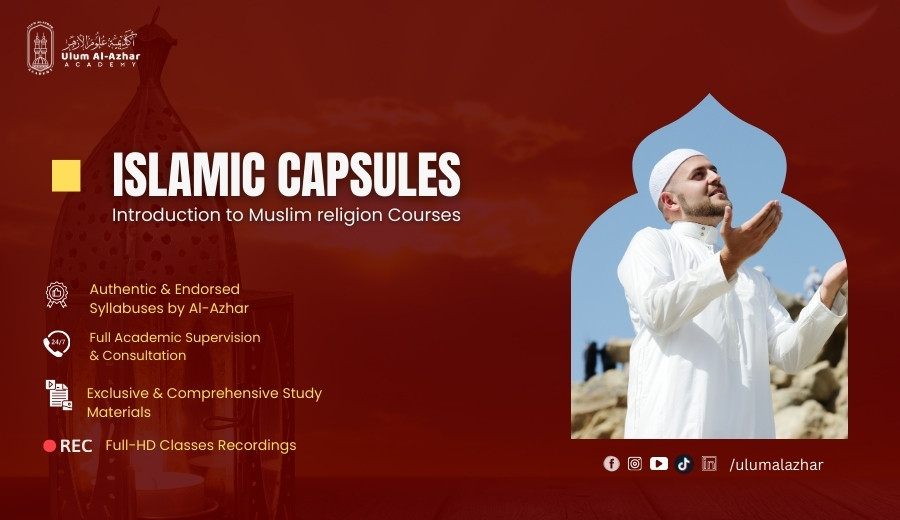
When Is Iftar? Understanding Sunset and Breaking Fast Timings
When is Iftar? Iftar is the moment every fasting person eagerly awaits—the time to break the fast at Maghrib (sunset) after a day of patience and devotion.
Iftar marks the end of fasting from dawn to dusk, bringing both physical relief and spiritual joy. Following the Sunnah, Muslims hasten to break their fast with dates and water, knowing that this sacred moment is also a time when duas are accepted. But how exactly do you determine the right time for Iftar? Let’s explore!
The Meaning of Iftar and Its Importance in Islam

When is iftar and what is it? Iftar is the meal Muslims eat at sunset (Maghrib time) to break their fast during Ramadan. It is a highly significant moment of the day, marking the end of fasting from dawn to sunset.
Importance of Iftar in Islam:
- Act of Worship & Sunnah – The Prophet Muhammad ﷺ encouraged breaking the fast immediately at sunset and not delaying it.
- Time of Accepted Dua – The moments before Iftar are among the best times to make dua, as it is not rejected.
- Reminder of Gratitude – Fasting teaches patience, self-control, and appreciation for Allah’s blessings.
- Community & Generosity – Sharing Iftar with family, friends, and the less fortunate strengthens brotherhood and increases rewards.
- Spiritual Renewal – Breaking the fast properly helps maintain energy for Isha and Taraweeh prayers.
- “The fasting person has two joys: one when he breaks his fast, and the other when he meets his Lord.” (Bukhari, Muslim)
- Best Sunnah Foods for Iftar: Dates, water, and light meals before a full meal.
Begin your Private Islamic learning journey with a free Consultation session by Sheikhs from Al-Azhar, Egypt!
How to Determine the Exact Time for Iftar
When is iftar and how to determine its exact time? The exact time for Iftar is at Maghrib (sunset), which varies by location and date. Here’s how to determine it:
- Follow the Adhan for Maghrib – the easiest method to know when is iftar is the Maghrib Adhan. As soon as the Maghrib adhan is called, you can break your fast.
- Check an Islamic Prayer Timetable – Use a local Islamic center’s timetable or a reliable Islamic app to know the sunset time in your area.
- Observe the Sunset – If no timetable is available, break your fast when the sun fully disappears below the horizon.
- Use Online Tools – Websites like IslamicFinder or apps like Muslim Pro provide accurate Iftar times based on your location.
- “When the night approaches from here and the day departs from there, and the sun has set, then the fasting person should break his fast.” (Bukhari, Muslim)
Explore the Benefit of Fasting Ramadan and why it’s important!
Sunnah Practices When Breaking the Fast
Now that you know when is iftar let’s discover its sunnah practices:
1. Breaking Fast Immediately at Maghrib
It is Sunnah to not delay Iftar once the sun sets.
“The people will continue to be upon goodness as long as they hasten in breaking the fast.” (Bukhari, Muslim)
2. Starting with Dates and Water
The Prophet ﷺ broke his fast with fresh dates, or dry dates, and if unavailable, water.
“When one of you breaks his fast, let him break it with dates, for they are blessed; if he cannot find dates, then with water, for it is pure.” (Abu Dawood)
3. Reciting the Iftar Dua
Once you know when is iftar and it is time to break it, say this supplication before eating:
اللهم لك صمت، وعلى رزقك أفطرت
“Allahumma laka sumtu, wa ‘ala rizqika aftartu.”
“O Allah, I have fasted for You, and with Your provision, I break my fast.” (Abu Dawood)
4. Know when is iftar for Making Dua Before It
The moments before Iftar are a time when duas are not rejected.
“The supplication of the fasting person at the time of breaking fast is not rejected.” (Ibn Majah)
5. Eating Moderately
Avoid overeating and begin with light foods before a full meal.
6. Learn when is iftar and Share Iftar with Others
Providing food for others to break their fast earns great rewards.
“Whoever gives food for a fasting person to break his fast, he will have a reward like theirs.” (Tirmidhi)
Discover the best Qadar night Dua and its beauty!
The Best Foods for a Healthy and Nourishing Iftar
Once you learn when is iftar you should break your iftar with healthy food. Breaking your fasting with the appropriate foods helps recharge energy, maintain hydration, and support digestion. The following foods are the best options for healthy and nutritious Iftar:
1. Sunnah Foods to Start With
- Dates – Natural energy booster, fiber, and essential nutrients.
- Water – Reconstitutes the body and prepares the stomach for digestion.
- Milk – Provides protein, calcium, and water.
2. Nutrient-Rich and Hydrating Foods
- Fruits – Oranges, berries, and watermelon replenish fluids and vitamins.
- Vegetable Soups – Light and warm, they prevent bloating and ease digestion.
3. High-Energy and Protein-Rich Foods
- Lean Proteins – Grilled chicken, fish, eggs, or lentils for sustained energy.
- Whole Grains – Whole wheat bread, brown rice, and oats maintain steady blood sugar.
4. Healthy Fats for Sustained Energy
- Nuts & Seeds – Almonds, walnuts, and chia seeds provide essential fats and minerals.
- Avocados & Olive Oil – Rich sources of heart-healthy fats.
5. Foods to Avoid
- Fried & Greasy Foods – Cause bloating and heaviness.
- Sugary Drinks & Sweets – Cause energy crashes and dehydration.
- Processed & Salty Foods – May lead to dehydration and digestive upset.
Duas to Recite Before and After Breaking the Fast
After knowing when is iftar you should learn some of the best duas to recite. The time before Iftar is a time of blessings when duas are never rejected. You can ask Allah for anything, but here is a recommended supplication:
اللهم إني أسألك برحمتك التي وسعت كل شيء أن تغفر لي
“Allahumma inni as’aluka birahmatika allati wasi’at kulla shay’in an taghfira li.”
“O Allah, I ask You by Your mercy, which encompasses everything, to forgive me.” (Ibn Majah)
Once you have broken your fast, recite the following Sunnah dua:
ذَهَبَ الظَّمَأُ وَابْتَلَّتِ الْعُرُوقُ وَثَبَتَ الْأَجْرُ إِنْ شَاءَ اللَّهُ
“Dhahaba al-zama’u wabtallati al-‘urooq wa thabata al-ajru in sha’ Allah.”
“The thirst has disappeared, the veins are nourished, and the reward has been confirmed, if Allah wills.” (Abu Dawood)
Tip: Add any personal dua at Iftar, as it is one of the best times for accepted prayers!
Common Mistakes Made During Iftar
Some people make mistakes at Iftar that can affect their health and spirituality benefits. Some of them are:
1. Delaying Iftar
The Prophet ﷺ encouraged breaking the fast once you when is iftar immediately at Maghrib.
“People will remain on goodness so long as they hasten to break the fast.” (Bukhari, Muslim)
2. Eating Too Much
Eating too much in too little time can cause bloating, sluggishness, and make it harder to pray Taraweeh.
3. Neglecting Sunnah Foods
- Once you know when is iftar it is best to break the fast with dates and water, Sunnah tells us.
- Don’t start with rich, fried, or sweet food.
4. Not Making Dua Before Iftar
The pre-Iftar period is a good time for accepted duas, but the majority of them get distracted.
5. Drinking Too Much Carbonated or Sugary Beverages
- Soft drinks and imitation juices result in a high sugar content and dehydration, instead of proper hydration.
- Alternative: Water, fresh juices, or milk.
6. Eating Too Much Fried & Greasy Foods
- Samosas, fries, and pakoras may result in indigestion and sluggishness.
- Opt for baked or grilled alternatives.
7. Missing Maghrib Prayer
Others delay Maghrib Salah in order to finish eating, but it is recommended to break fasting with a light meal, perform Maghrib prayer, and then eat a full meal.
Join our Sacred Months in Islam & Blessed Times course to discover the significance of holy months, special seasons, and the ways to maximize barakah in your life. Don’t miss this opportunity to deepen your connection with Allah and remember the Days of Allah! Enroll now and make the most of these divine moments!

Conclusion
Now we know when is iftar and how to determine Breaking the fast (Iftar) is not just breaking the fast, it is an act of gratitude, reflection, and a lot of reward. As soon as the sun sets (time of Maghrib), Muslims worldwide unite in doing this great act of faith, following the Sunnah of breaking their fast at the first opportunity.
By understanding the right time of Iftar and realizing its religious significance, we can extract the best from this sacred hour. May our fasting be accepted, and our duas be answered!
Book a free Consultation session and start learning!
FAQs
Is iftar and Maghrib at the same time?
Yes, Iftar and Maghrib are at the same time, as Iftar begins immediately at Maghrib (sunset).
When to start iftar?
Iftar should start immediately at Maghrib (sunset) when the adhan is called.

